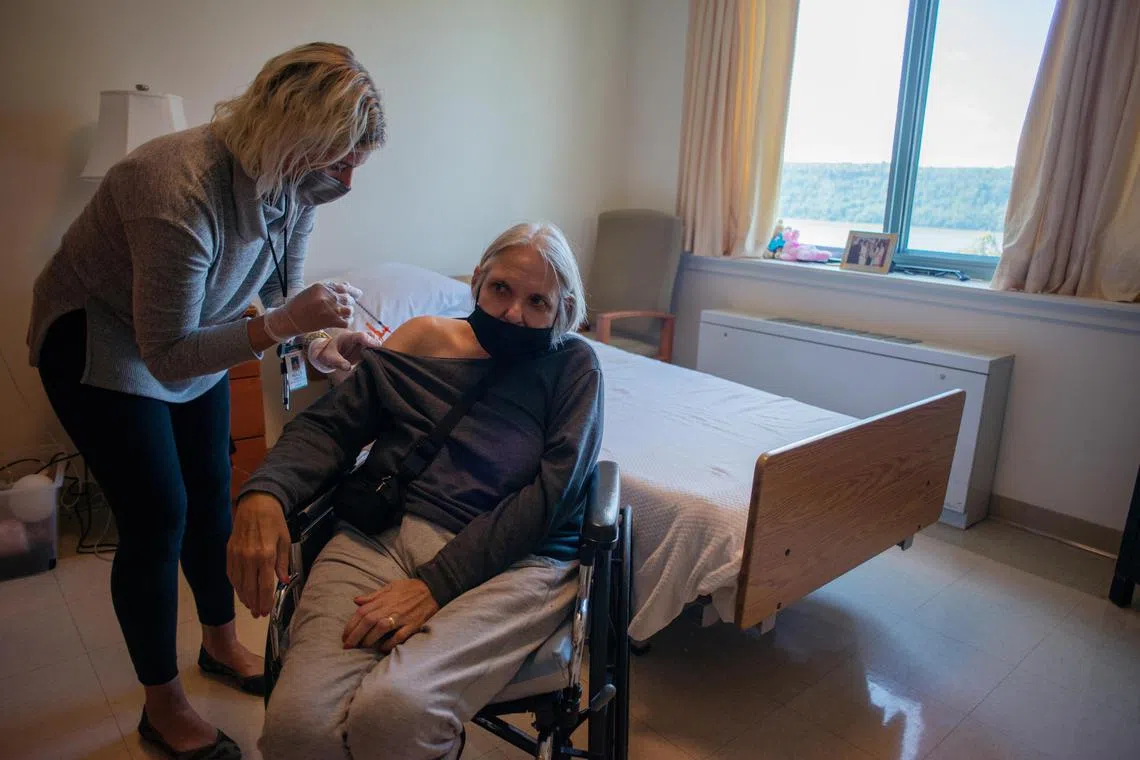Updated boosters stem severe Covid-19 in older adults, US CDC says
Sign up now: Get ST's newsletters delivered to your inbox

A resident gets the new bivalent Omicron booster shot at the Hebrew Home at Riverdale, a nursing care facility in the Bronx, New York.
PHOTO: NYTIMES
WASHINGTON - The updated Covid-19 booster shots give adults ages 65 and older the greatest level of protection against hospitalisation, according to new US government data.
Bivalent boosters were 73 per cent effective at preventing hospitalisations due to Covid-19 in this group of older adults compared with people of the same age who got two or more doses of the original formulation of the vaccine, the Centres for Disease Control and Prevention (CDC) said on Friday. The reduced risk of hospitalisation was smaller in younger adults, the agency said.
The findings add to evidence that shows the new booster shots from Moderna and the partnership of Pfizer and BioNTech have at least some benefit, although the magnitude seems to vary according to one’s age and the length of time between doses.
Researchers say that more studies are needed to evaluate the durability of boosters, especially as new variants continue to emerge.
The Biden administration has been pushing the new shots
With cases rising and more people gathering indoors this winter, the White House this week announced a plan to get more boosters to seniors and other higher-risk groups.
For younger, healthy Americans, the benefit is less pronounced. The new CDC data found that bivalent boosters were 38 per cent effective at stemming Covid-19 hospitalisation in people aged 18 and older compared with those who had at least two vaccine doses five to seven months earlier.
Among all age groups, boosters appear to work best when there is a longer amount of time between doses.
Outside advisers to the Food and Drug Administration will meet in January to discuss what changes should be made to Covid-19 vaccine guidelines to keep pace with the evolving virus. BLOOMBERG


